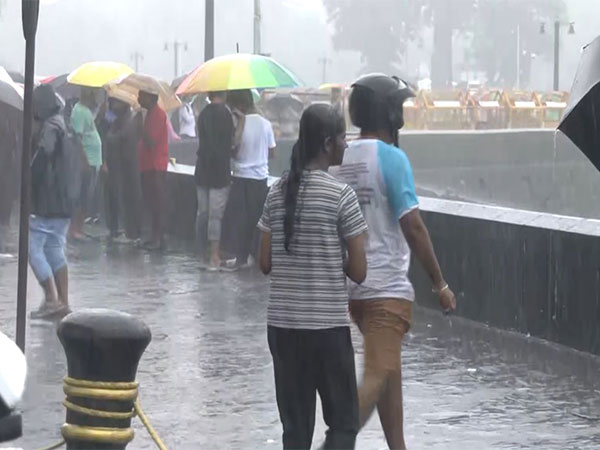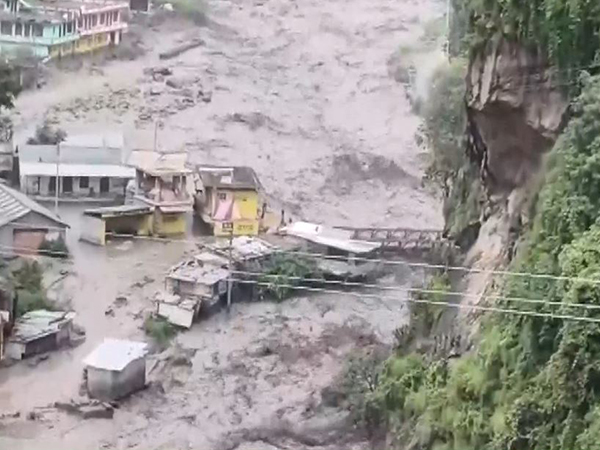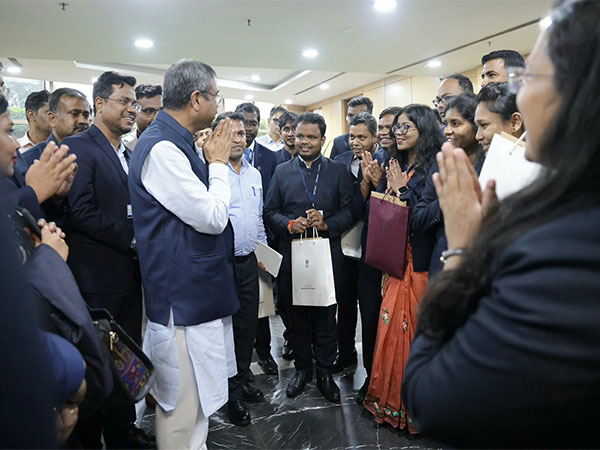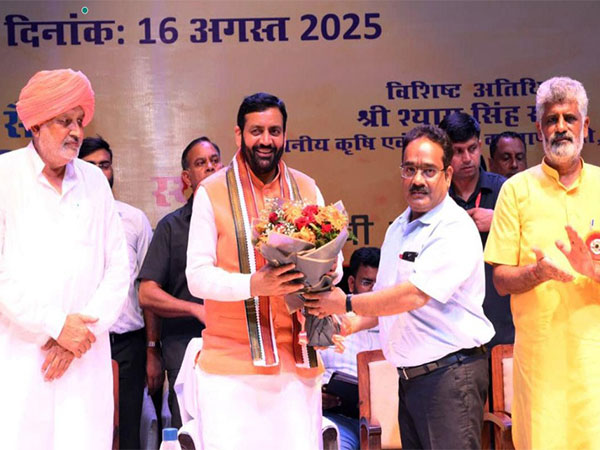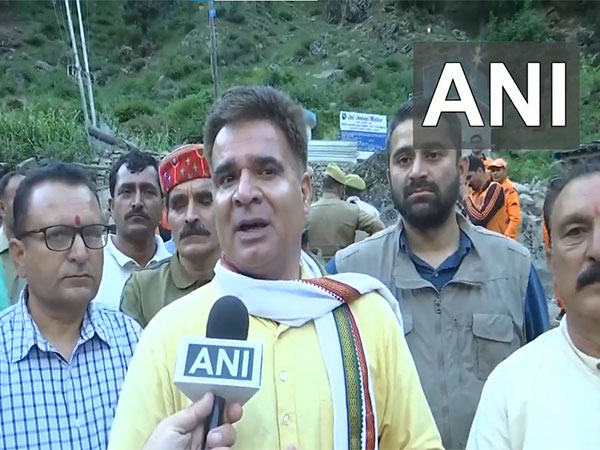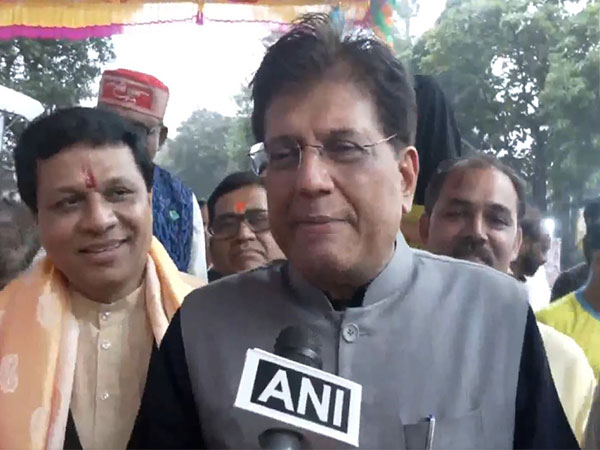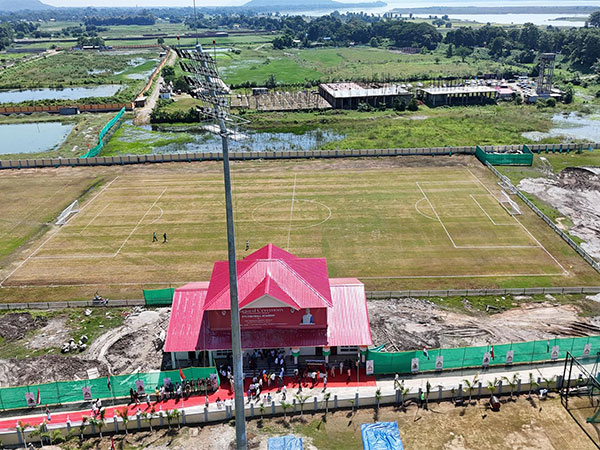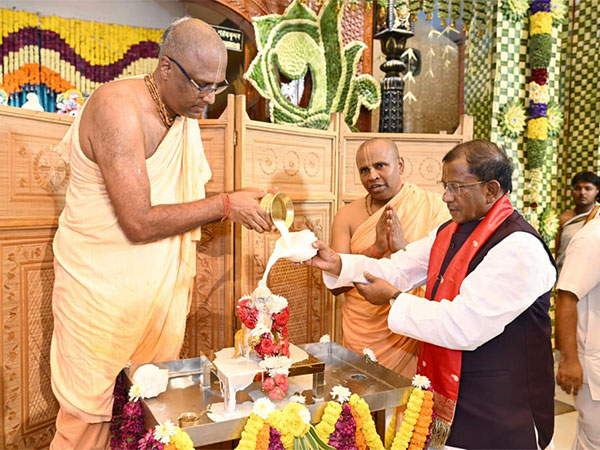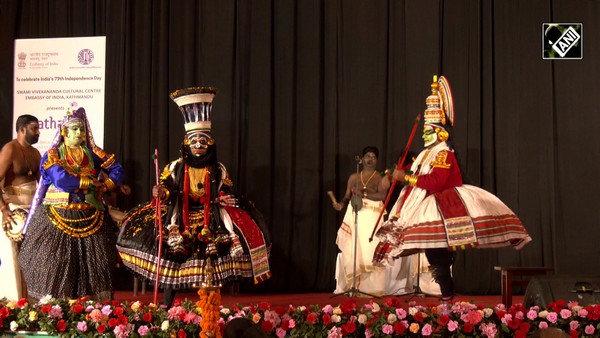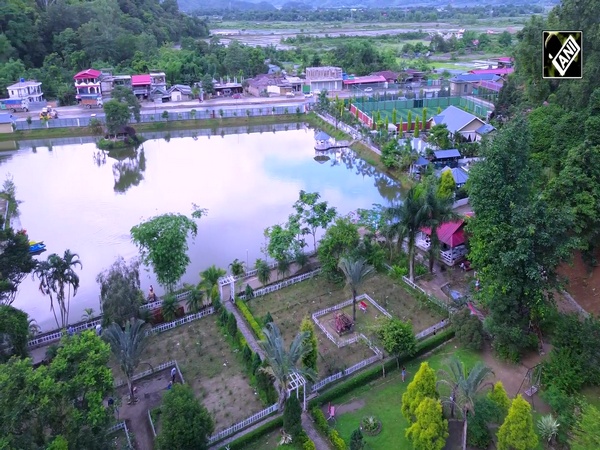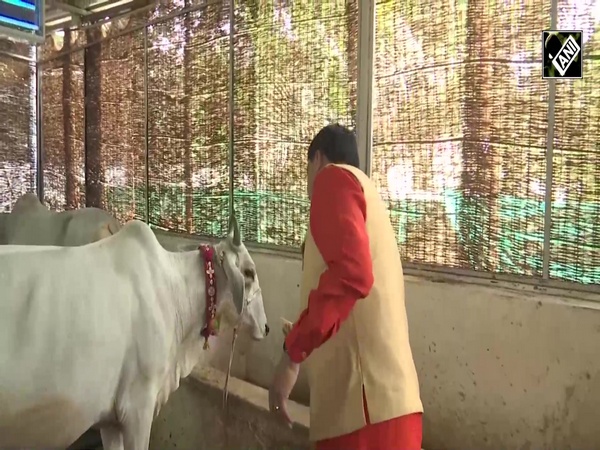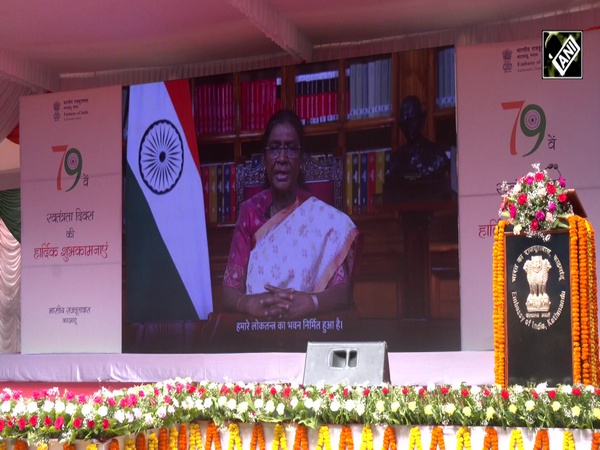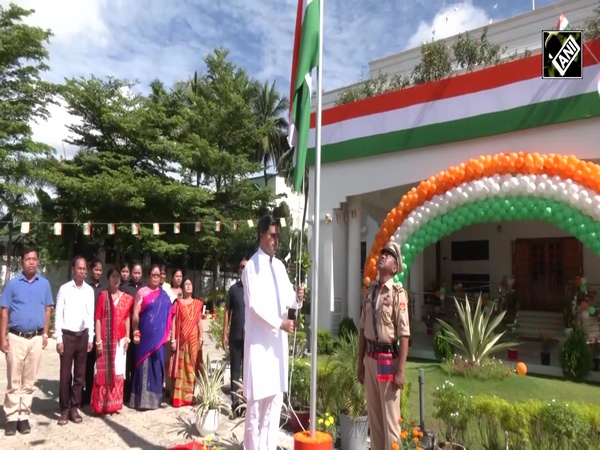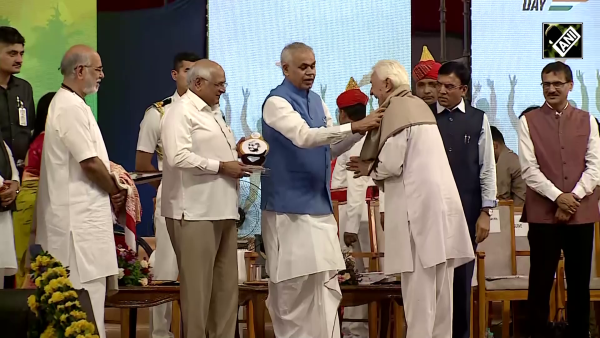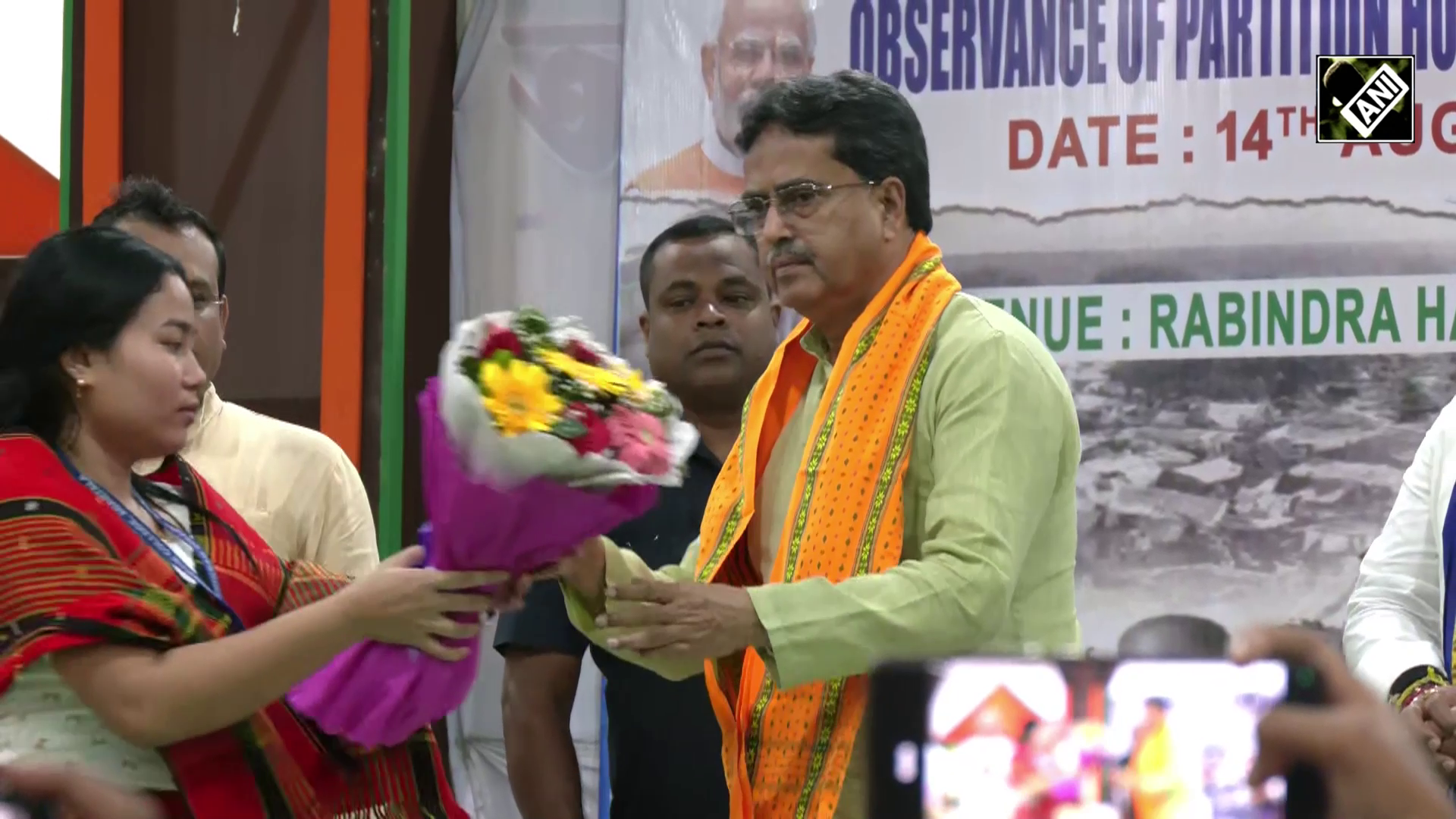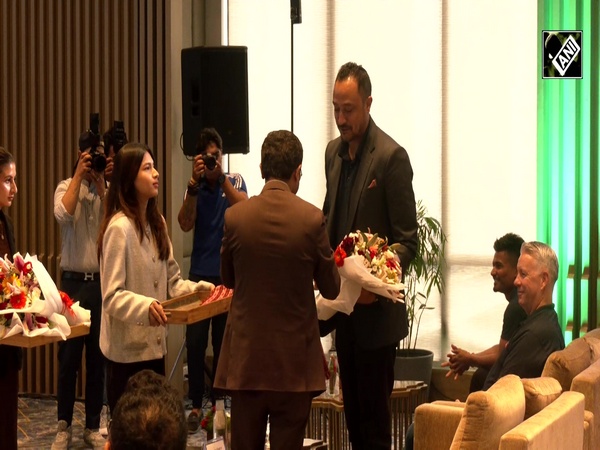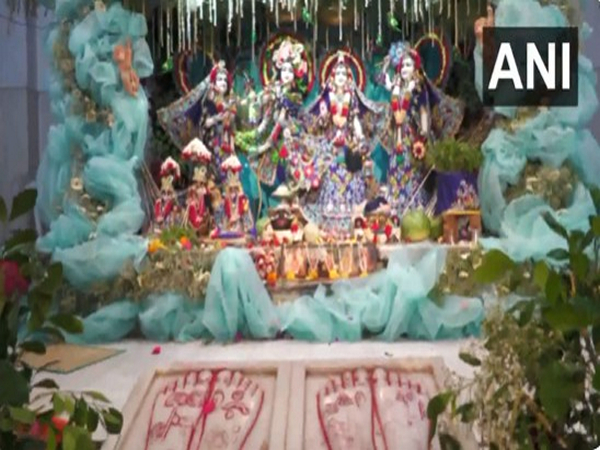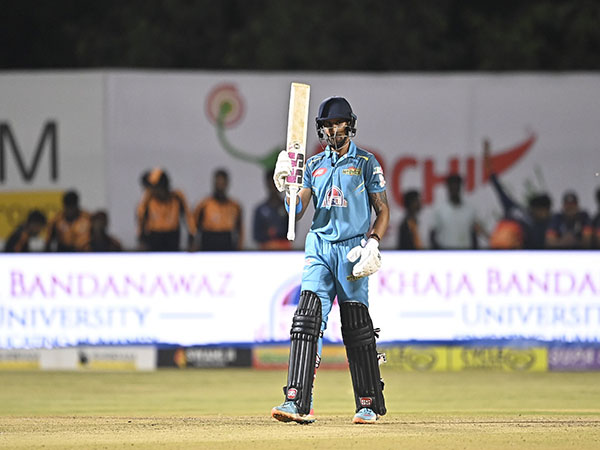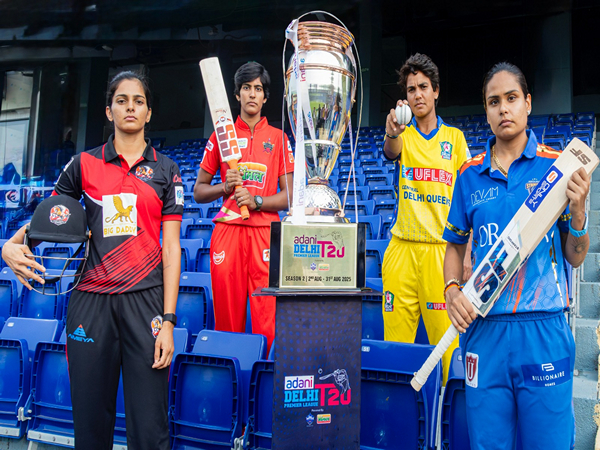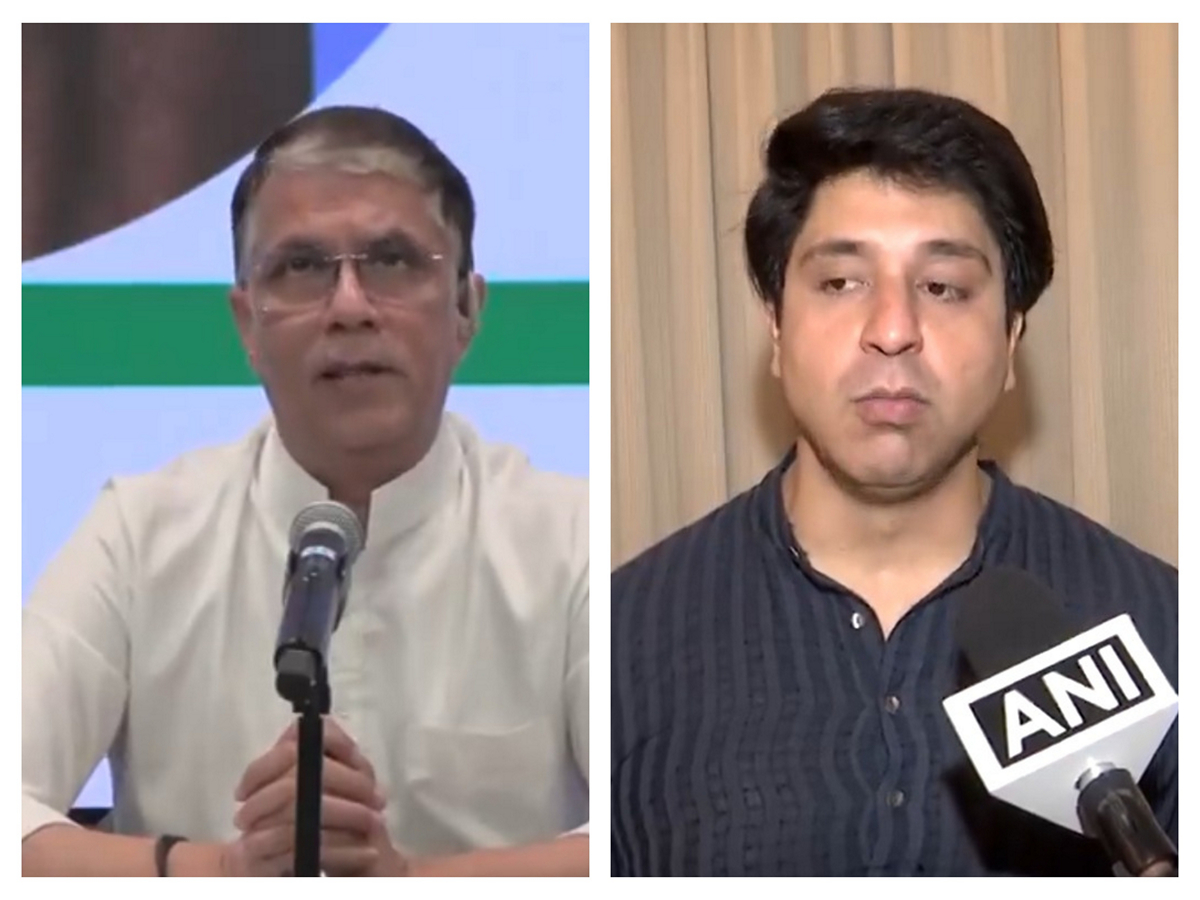
NCERT Partition Module: Congress says, "Set this book on fire"; BJP hits back, "Who had power to stop it?"
Aug 16, 2025
New Delhi [India], August 16 Slamming the Congress for calling to set the NCERT's new module on Partition Horrors Remembrance Day "on fire," the BJP leaders on Saturday said the two-nation theory was "implemented by Congress and Muhammad Ali Jinnah," and the students have the right to know the "truth" about the most painful chapter in India's history.
The module was released by NCERT to mark 'Partition Horrors Remembrance Day' (August 14). It holds Jinnah, the Congress, and then Viceroy Lord Mountbatten responsible for India's partition.
BJP spokesperson Shehzad Poonawalla said the Partition was not just a result of communal demands but also a compromise overseen by the Congress leadership at the time.
"I want to ask Congress...Who had the power to stop this at the last moment?... Everyone knows the two-nation theory, which was implemented by Congress and Muhammad Ali Jinnah," BJP spokesperson Shehzad Poonawalla said.
He linked the debate to contemporary politics, alleging that Congress continues to push a divisive approach. "Congress still talks about Muslim first and the partition of India...," he said.
His statement came after Congress spokesperson Pawan Khera on Saturday strongly criticised NCERT's newly released module titled 'Partition Horrors Remembrance Day.' Alleging that the government is "distorting" history, Khera said the Rashtriya Swayamsevak Sangh was the "greatest villain."
"Set this book (module) on fire if it doesn't contain all of this. This is the reality. The Partition happened due to the collaboration between the Hindu Mahasabha and the Muslim League. If there is any greatest villain in history, it is the Rashtriya Swayamsevak Sangh (RSS)," Khera said in a press conference.
He accused the RSS of working as "informants" for 25 years.
"Generations will not forgive the role they played. They spent 25 years of that time acting as informants. And in that espionage, they collaborated further--with the Muslim League, with Jinnah. (veteran BJP leader L K) Advani himself went to Jinnah's tomb, to bow down, to express gratitude," Khera added.
"That's why, the way they are interfering in institutions and distorting history--we are not the ones to sit quietly. Can they erase these pages of history? The ones from 1938, 1940, 1942?" he added.
BJP national spokesperson Gaurav Bhatia also hit out at Congress for raising objections over NCERT's new module on the partition, and said that the "Rahul-Jinnah" party was upset about the truth coming out.
Bhatia said Jinnah's poisonous thinking of appeasement and communalism can be seen in Rahul Gandhi and the Congress.
"NCERT has made some changes in the textbooks, and the truth of partition has been added. The 'Rahul-Jinnah' party is very upset with the truth coming out. Rahul Gandhi and Mohammad Ali Jinnah have the same thinking. They have become synonymous with each other. India was partitioned on the basis of religion, and Jinnah's poisonous thinking of appeasement can be seen in Rahul Gandhi and the Congress party today," Bhatia said while addressing a press conference.
He further accused the Congress of advocating for reservations on the basis of religion and wishing for Sharia law to be implemented.
"The Congress party also says that reservations should be based on religion, which Jinnah also said. The Congress party also says that Sharia law should be implemented in the country. The coming generations should know the truth of partition," Bhatia said.
BJP leader Syed Shahnawaz Hussain also defended the National Council of Educational Research and Training (NCERT)'s module and questioned the role of the Congress leadership at the time, asking why the party accepted the partition.
"The partition that happened, and the horror it ensued, was completely true. There is a lot of discussion about the way we got independence on the 15th (August), but not about the horror that happened during the partition," Hussain said while speaking to ANI.
"The British did the partition. But why did the Congress accept it?... Accepting the partition is like burning the country. Many people died, and many houses were destroyed," he said.
Hussain added that the module was not an attempt to rewrite history but to ensure schoolchildren understand the human cost of Partition.
"Children have the right to know how terrible it was. Everyone talks about independence, but no one took responsibility for the partition. Now, when NCERT is including this subject, Congress leaders are talking about burning it," he stated.
BJP leader and Union Minister Sanjay Seth also asserted that students have the right to know about one of the most painful chapters in India's history.
"Does the next generation not have a right to know the partition history?.. Tell him (Pawan Khera) to read history, who is responsible," Seth said in Ranchi while responding to the Congress leader's criticism of the move.
The controversy has erupted after NCERT's new special module on the Partition of India have placed significant responsibility on the Congress leadership for the division of the country, saying they "accepted the plans of Partition" and "underestimated Jinnah" while failing to anticipate the long-term horrors that followed.
"The Partition of India and the creation of Pakistan were by no means inevitable," the module states. Instead, they argue, three actors shaped the division, "Jinnah, who demanded it; the Congress, which accepted it; and Mountbatten, who formalised and implemented it."
The secondary stage module notes, "None of the Indian leaders had experience in running national or even provincial administration, the army, police, etc. Hence, they had no idea of the massive problems that would naturally arise... Otherwise, such haste would not have been made."
The module describe Partition as an "unprecedented human tragedy, with no parallel in world history." The module documented mass killings, the displacement of nearly 1.5 crore people, large-scale sexual violence, and trains of refugees arriving "filled only with corpses, having been slaughtered en route."
One section notes, "Some horrors began even before Partition was finalised... The horrific events in Noakhali and Calcutta (1946), and Rawalpindi, Thoha, and Beval (March 1947) stand as chilling examples."
The module highlights that the Muslim League's Direct Action Day in August 1946, accompanied by violence, was a turning point. It cites Jinnah's warning, "Either a divided India or a destroyed India," as pressure that led Congress leaders Pt Jawahar Lal Nehru and Sardar Patel to concede finally.
"The Congress initially accepted that proposal. Then it backed out. Jinnah became angry and declared 'Direct Action Day' (16 August 1946).
He said that they would also use violence to press their demand for Pakistan. As a result, in just two or three days of that 'Direct Action',
6000 people were killed in Calcutta alone," the module said.
The module also links Partition directly to enduring challenges, including the Kashmir conflict, communal politics, and external pressures on India's foreign policy.
"Pakistan has waged three wars to annexe Kashmir and, after losing them, adopted a policy of exporting jihadist terrorism... All this is a consequence of Partition," it states.
Even Jinnah, the module notes, later admitted he had not expected Partition to materialise in his lifetime: "I never thought it would happen. I had never expected to see Pakistan in my lifetime."
The section also emphasises Mountbatten's role in advancing the transfer of power from June 1948 to August 1947, calling the haste "a great act of carelessness" that left millions unaware which country they belonged to even after Independence Day.
The modules conclude by framing Partition as a warning for future generations: "Shortsightedness in rulers can become a national catastrophe. Giving concessions to violence to gain peace results in whetting the appetite of violence-prone groups."
It emphasises that recalling the "Horrors of Partition" is crucial only if India draws lessons, rejecting communal politics and ensuring leadership that prioritises national welfare over personal or party interests.
